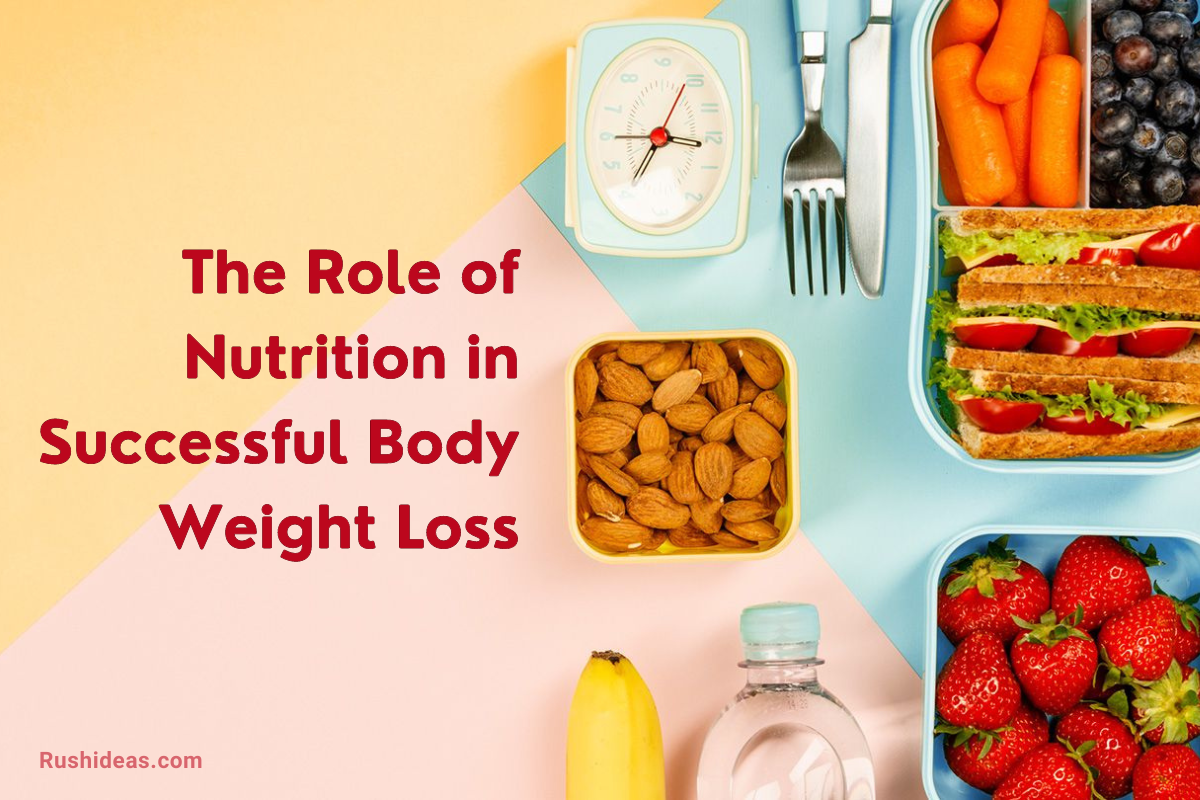Introduction
In the ever-evolving landscape of health and wellness, weight loss remains a topic of perennial interest. While exercise undoubtedly plays a crucial role in achieving and maintaining a healthy weight, nutrition stands as the cornerstone of any successful weight loss journey. The adage “you are what you eat” couldn’t be more accurate when it comes to shedding unwanted pounds. In this comprehensive guide, we delve deep into the intricate relationship between nutrition and successful body weight loss, exploring the science behind it, debunking myths, and offering practical tips for sustainable results.
Understanding Weight Loss
Before delving into the role of nutrition, it’s essential to understand the basic principles of weight loss. At its core, weight loss is a matter of energy balance—calories in versus calories out. To lose weight, one must consume fewer calories than they expend. This can be achieved through a combination of dietary changes and increased physical activity.
However, not all calories are created equal. The source of calories matters significantly when it comes to weight loss and overall health. While a calorie deficit is necessary for weight loss, the quality of the calories consumed can impact factors such as hunger, metabolism, and body composition.
The Role of Nutrition
Nutrition plays a multifaceted role in successful weight loss, influencing various physiological processes that govern metabolism, appetite, and fat storage. By understanding how different nutrients affect the body, individuals can make informed dietary choices to support their weight loss goals.

Macronutrients in Nutrition:
Macronutrients—carbohydrates, proteins, and fats—are the building blocks of the diet and provide the body with energy. Balancing these macronutrients is crucial for achieving sustainable weight loss.
- Carbohydrates: Often vilified in popular diet culture, carbohydrates are an essential source of energy for the body, particularly for high-intensity activities. However, not all carbohydrates are created equal. Whole grains, fruits, and vegetables provide fiber, vitamins, and minerals, while refined carbohydrates like white bread and sugary snacks offer little nutritional value and can spike blood sugar levels, leading to cravings and overeating.
- Proteins: Protein plays a pivotal role in weight loss due to its satiating effect and its role in preserving lean muscle mass during calorie restriction. Foods rich in protein, such as lean meats, fish, eggs, tofu, and legumes, can help curb hunger and support muscle recovery and growth, thereby boosting metabolism and aiding in fat loss.
- Fats: Despite their higher calorie density, healthy fats are an essential component of a balanced diet. Monounsaturated and polyunsaturated fats, found in sources like avocados, nuts, seeds, and olive oil, can improve satiety, regulate hormone production, and support overall health. However, it’s essential to moderate intake, as fats are calorically dense and can contribute to weight gain if consumed in excess.
Micronutrients in Nutrition:
In addition to macronutrients, micronutrients—vitamins and minerals—are vital for overall health and can impact weight loss success.
- Vitamins: Certain vitamins, such as vitamin D, B vitamins, and antioxidants like vitamin C and E, play roles in metabolism, energy production, and immune function. Adequate intake of these vitamins through a varied diet rich in fruits, vegetables, whole grains, and lean proteins can support weight loss efforts and overall well-being.
- Minerals: Minerals like calcium, magnesium, and iron are essential for various physiological processes, including bone health, muscle function, and oxygen transport. Deficiencies in these minerals can impair metabolism and energy levels, hindering weight loss progress. Incorporating nutrient-dense foods like leafy greens, dairy products, nuts, and seeds can help meet mineral needs and support weight management.
Hydration:
Proper hydration is often overlooked but is critical for optimal weight loss. Water plays a vital role in metabolism, digestion, and appetite regulation. Drinking an adequate amount of water throughout the day can help prevent overeating by promoting feelings of fullness and may even temporarily boost metabolism. Additionally, choosing water over sugary beverages can significantly reduce calorie intake and support weight loss efforts.
The Importance of Fiber:
Fiber is a type of carbohydrate found in plant-based foods that the body cannot digest. Despite being calorie-free, fiber-rich foods like fruits, vegetables, whole grains, and legumes are incredibly filling and can help control hunger and cravings. Fiber also slows the absorption of nutrients, stabilizes blood sugar levels, and promotes digestive health. By incorporating plenty of fiber into the diet, individuals can support weight loss while nourishing their bodies with essential nutrients.
Mindful Eating:
In today’s fast-paced world, many people struggle with mindless eating, consuming food quickly and often in response to emotions rather than hunger. Mindful eating is a practice that encourages individuals to slow down, savor each bite, and pay attention to hunger and fullness cues. By practicing mindful eating, individuals can develop a healthier relationship with food, improve digestion, and make more conscious food choices, ultimately supporting their weight loss goals.
Meal Timing and Frequency:
While the concept of “eating every few hours” was once touted as a weight loss strategy, research suggests that meal timing and frequency may be less important than previously believed. Instead, focusing on overall calorie intake and food quality appears to be more critical for weight loss success. Some individuals may find that eating smaller, more frequent meals helps control hunger and stabilize energy levels, while others may prefer larger, less frequent meals. Ultimately, finding a meal pattern that aligns with individual preferences and lifestyles is key to sustainable weight loss.
Practical Tips for Success:
1. Plan and Prepare Meals: Planning and preparing meals in advance can help individuals make healthier choices and avoid the temptation of fast food or convenience meals. Batch cooking, meal prepping, and creating a grocery list can streamline the meal planning process and set the stage for success.
2. Focus on Whole, Nutrient-Dense Foods: Prioritize whole, nutrient-dense foods like fruits, vegetables, lean proteins, whole grains, and healthy fats. These foods provide essential nutrients while helping control hunger and cravings, making weight loss more manageable and sustainable.
3. Practice Portion Control: Paying attention to portion sizes can prevent overeating and support weight loss goals. Using smaller plates, measuring servings, and being mindful of portion sizes when dining out can help individuals manage their calorie intake and stay on track.
4. Listen to Your Body: Tuning into hunger and fullness cues can help individuals eat intuitively and avoid unnecessary calorie consumption. Eating slowly, taking breaks during meals, and stopping when satisfied can prevent overeating and promote a healthier relationship with food.
5. Stay Consistent: Consistency is key to long-term weight loss success. While occasional indulgences are normal and can be enjoyed in moderation, maintaining a consistent approach to nutrition and exercise is essential for achieving and maintaining a healthy weight.
Conclusion:Nutrition in Weight Loss
In conclusion, nutrition plays a pivotal role in successful body weight loss, influencing various physiological processes that govern metabolism, appetite, and fat storage. By focusing on nutrient-dense foods, staying hydrated, practicing mindful eating, and paying attention to portion sizes, individuals can support their weight loss goals and improve overall health. While there is no one-size-fits-all approach to nutrition, adopting sustainable habits and making gradual changes over time can lead to lasting results and a healthier, happier life. Remember, the journey to weight loss is not just about reaching a number on the scale but about nourishing your body, mind, and soul for long-term well-being.




















Leave a Reply